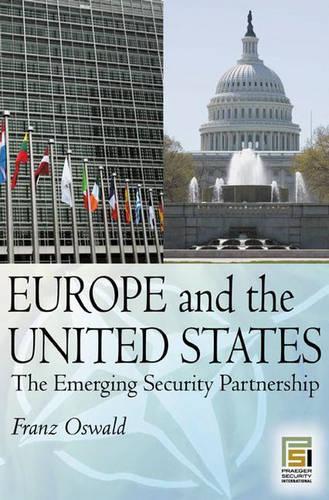
Europe and the United States: The Emerging Security Partnership
(Hardback)
Publishing Details
Europe and the United States: The Emerging Security Partnership
By (Author) Franz Oswald
Bloomsbury Publishing PLC
Praeger Publishers Inc
30th April 2006
United States
Classifications
General
Non Fiction
327.7304
Physical Properties
Hardback
200
Description
Oswald argues that European security autonomy will lead to a more balanced transatlantic partnership, even though American military might will remain far superior. As U.S. leaders indicate a willingness to disengage from their former European protectorate, the Europeanization of Europe's own security needstheir ability to take care of their own criseswill proceed apace. An understanding of this process is key to an American foreign policy that recognizes Europe as a strategic actor in its own right, an indispensable ally with its own military and nonmilitary instruments of crisis management. At the end of the Cold War with the collapse of the Soviet Union in 1991, and the postcommunist transformation of Central and Eastern Europe, the U.S.-led NATO alliance found itself without its erstwhile primary enemy. While NATO found new purpose as guarantor of stability for an increasing membership and crisis manager in Southeast Europe, the alliance's expansion also advanced its transformation from a collective defense organization into a security community. While NATO was redefining itself, the European Union created the institutional and political prerequisites for a European security and defense policy. In his analysis of Europe's emancipation from security dependence on the United States, Oswald expects the economic strength of the European bloc to translate into responsibility for regional security. Yet this is not to say that the EU is emerging as the primary challenger to U.S. hegemony. Instead, Oswald argues, European security autonomy will lead to a more balanced transatlantic partnership, even though American military might will remain far superior. As U.S. leaders indicate a willingness to disengage from their former European protectorate, the Europeanization of Europe's own security needstheir ability to take care of their own criseswill proceed apace. An understanding of this process is key to an American foreign policy that recognizes Europe as a strategic actor in its own right, an indispensable ally with its own military and nonmilitary instruments of crisis management.
Reviews
Oswald analyzes international security aspects of US-European relations, arguing that an emergent Europe is now capable of managing its own security, allowing the US to disengage its military presence and adapt to a more balanced transatlantic partnership. He analyzes changes in the National Atlantic Treaty Organization alliance and the EU's Common Security and Defense Policy, discusses US approaches to European security under the Clinton and George W. Bush administrations, and outlines the likely framework of future transatlantic relations. * Reference & Research Book News *
Author Bio
Franz Oswald is Associate Professor of European Politics and International Relations at Curtin University of Technology, Perth, Western Australia, and the author of The Party That Came Out of the Cold War: The Party of Democratic Socialism in United Germany (Praeger, 2002).
